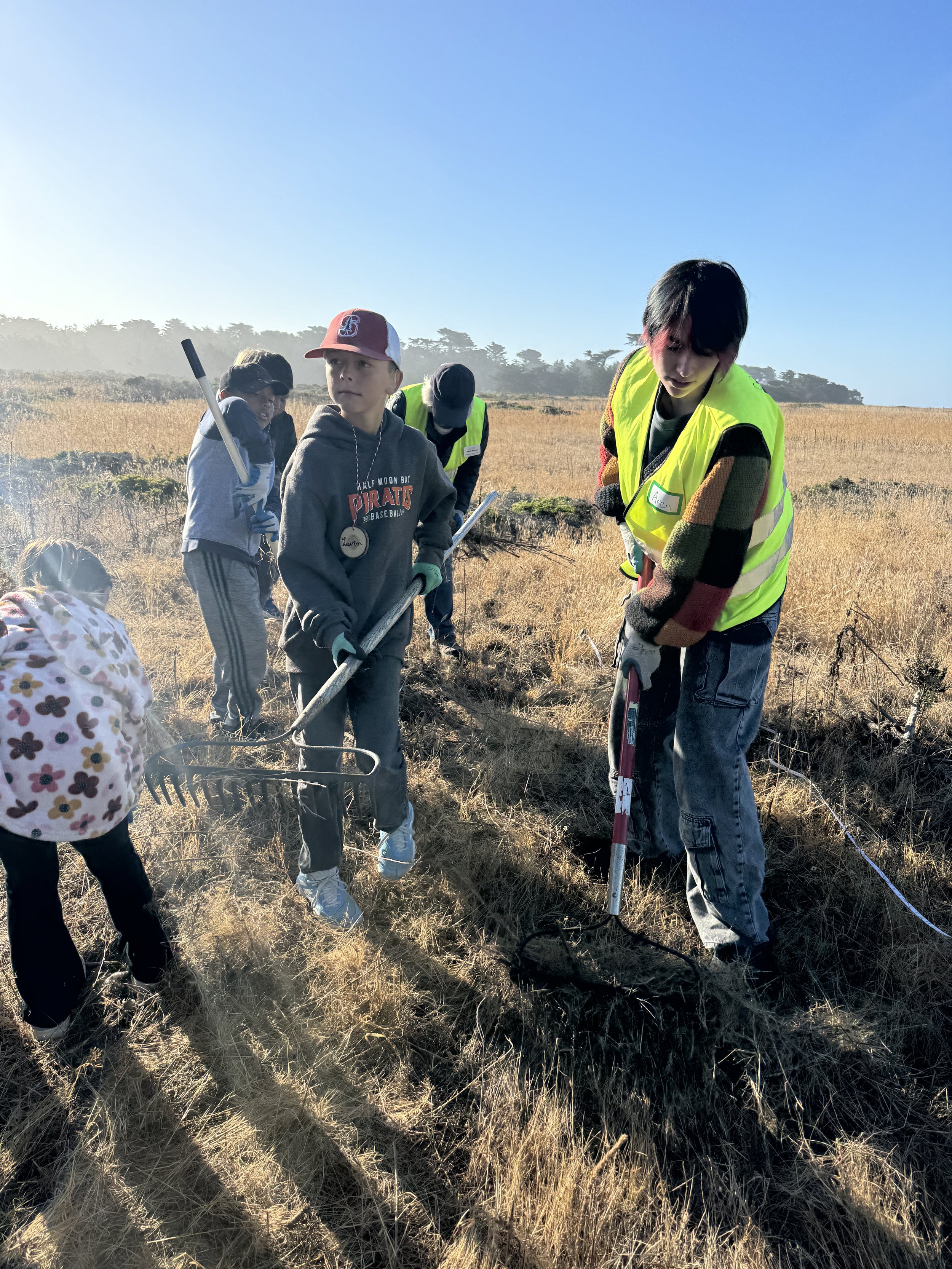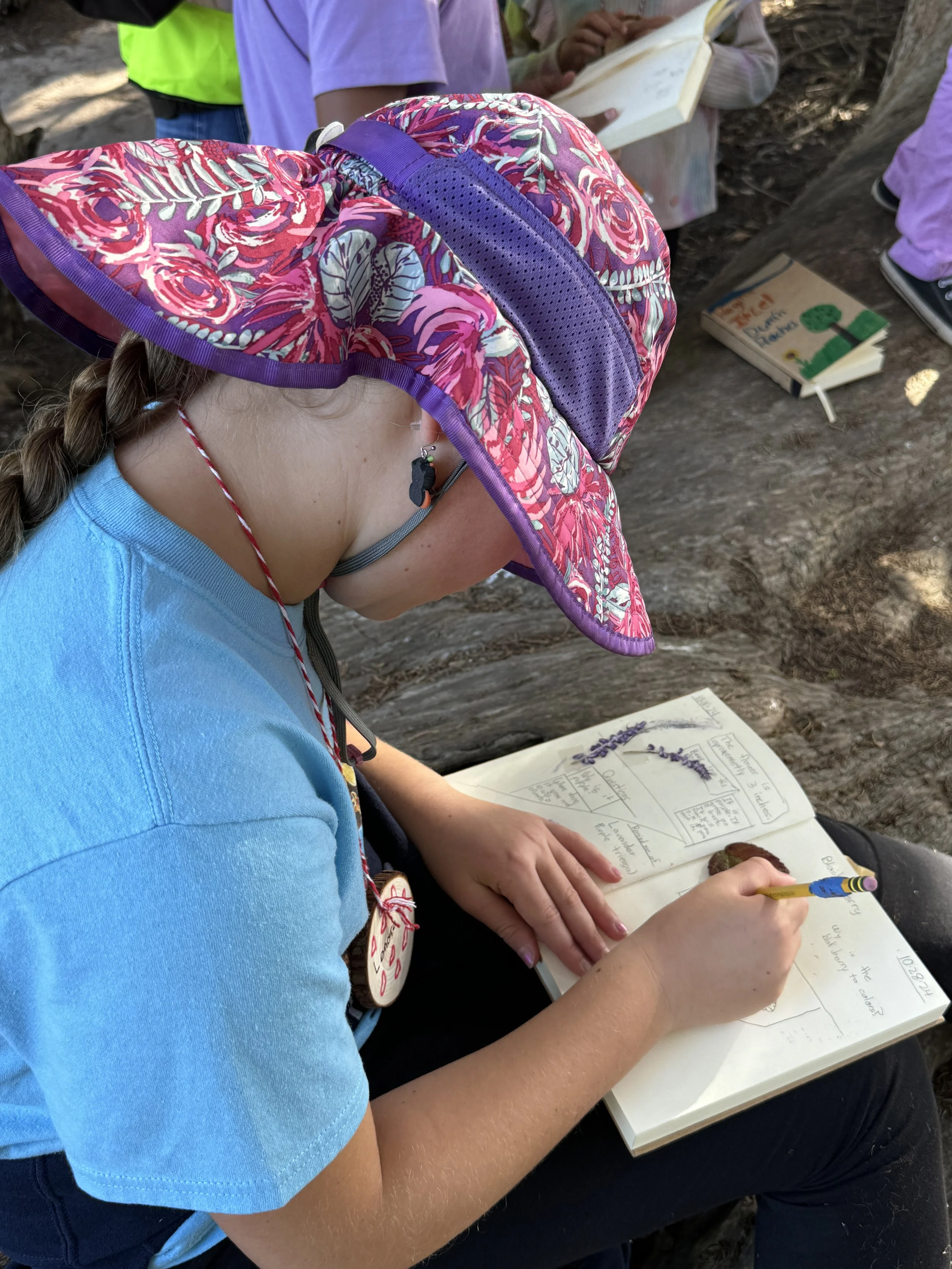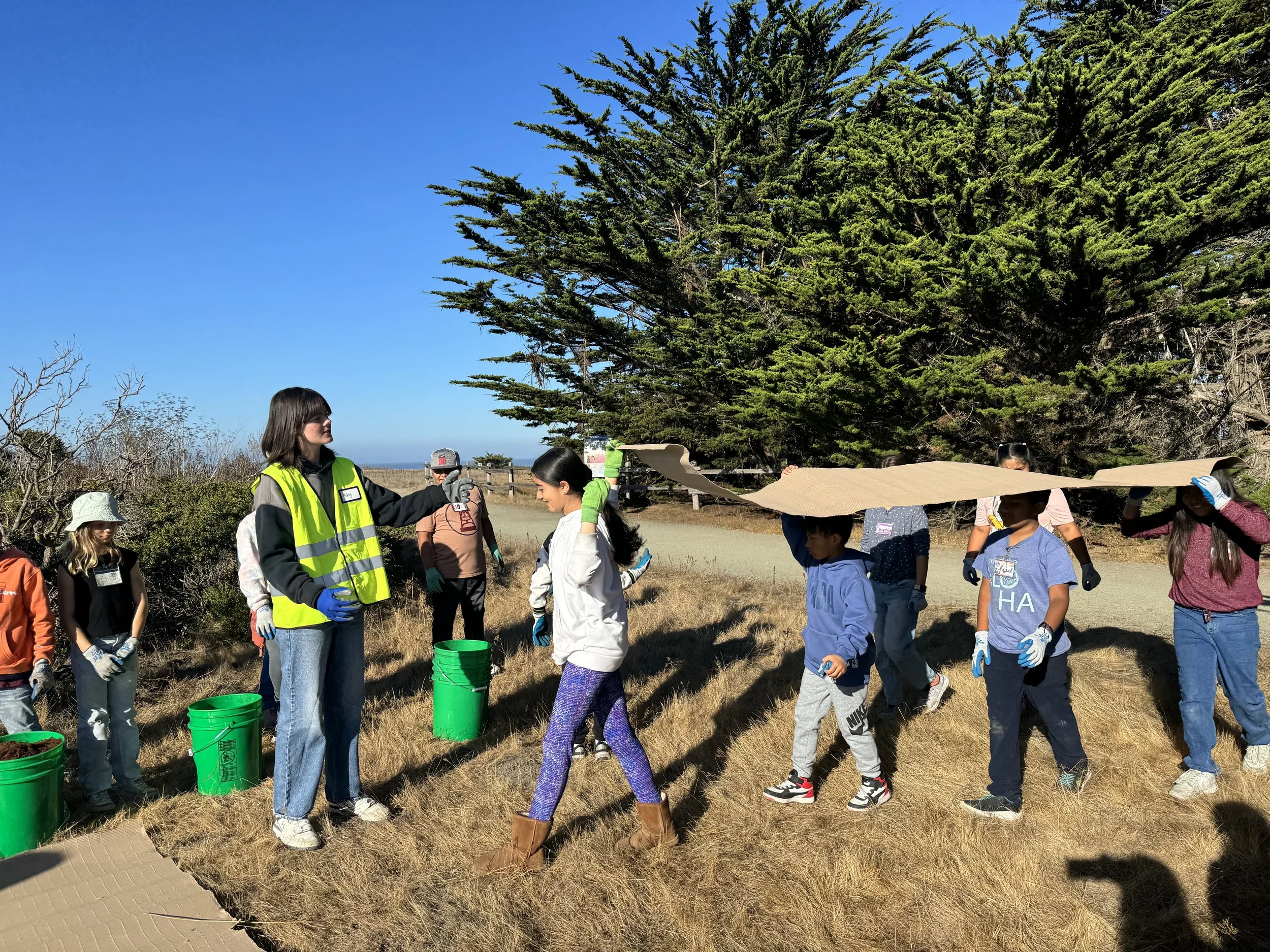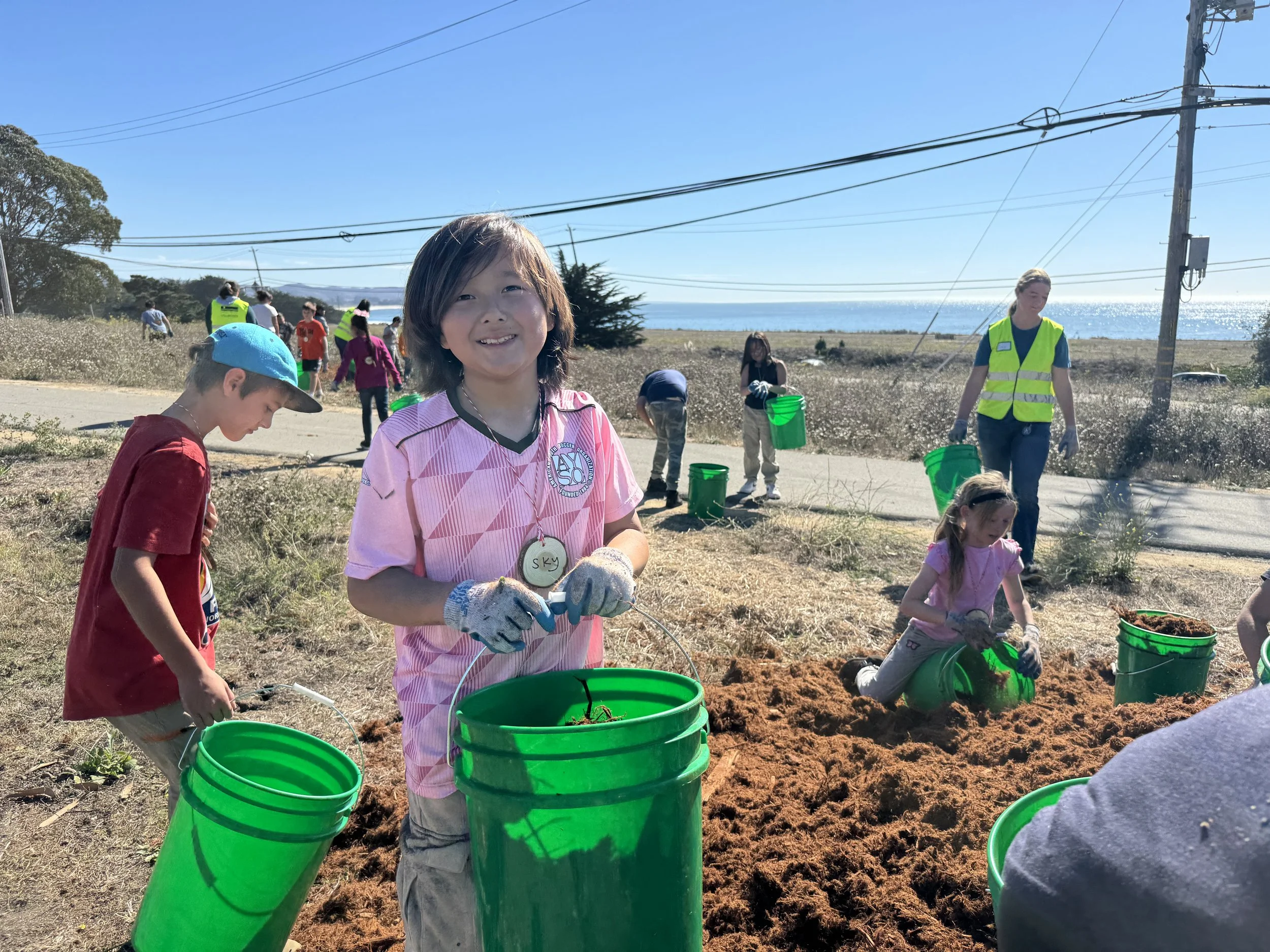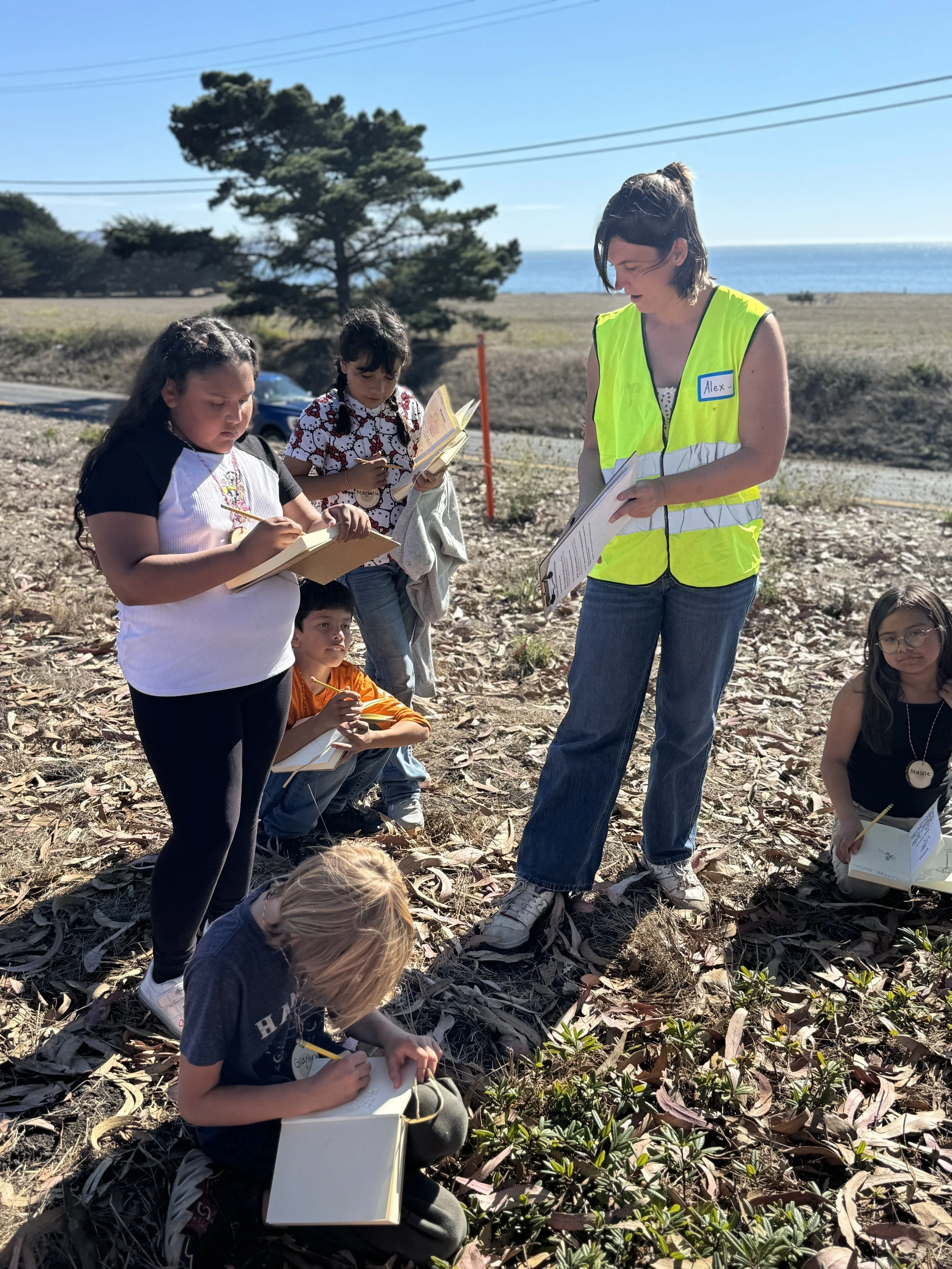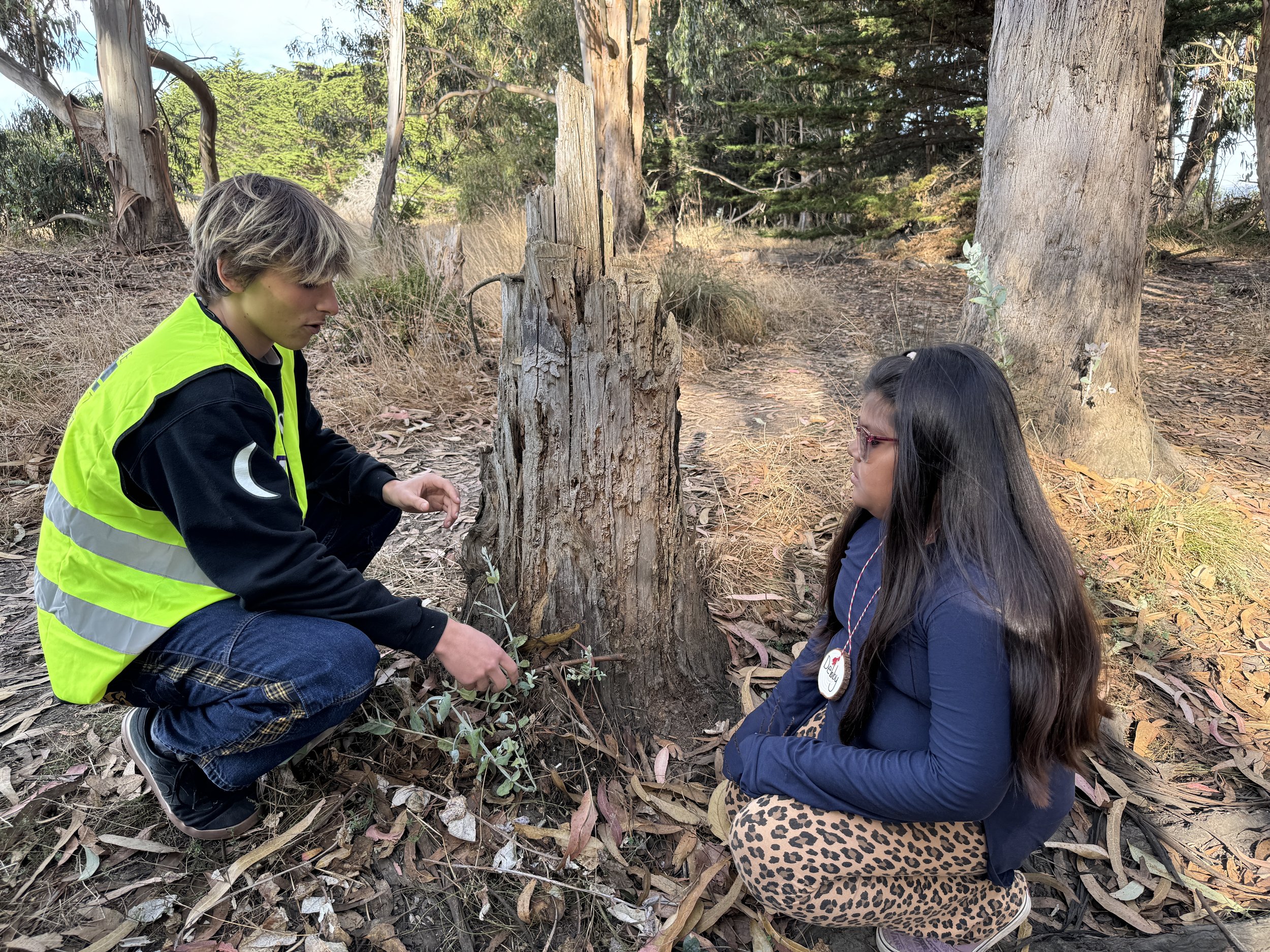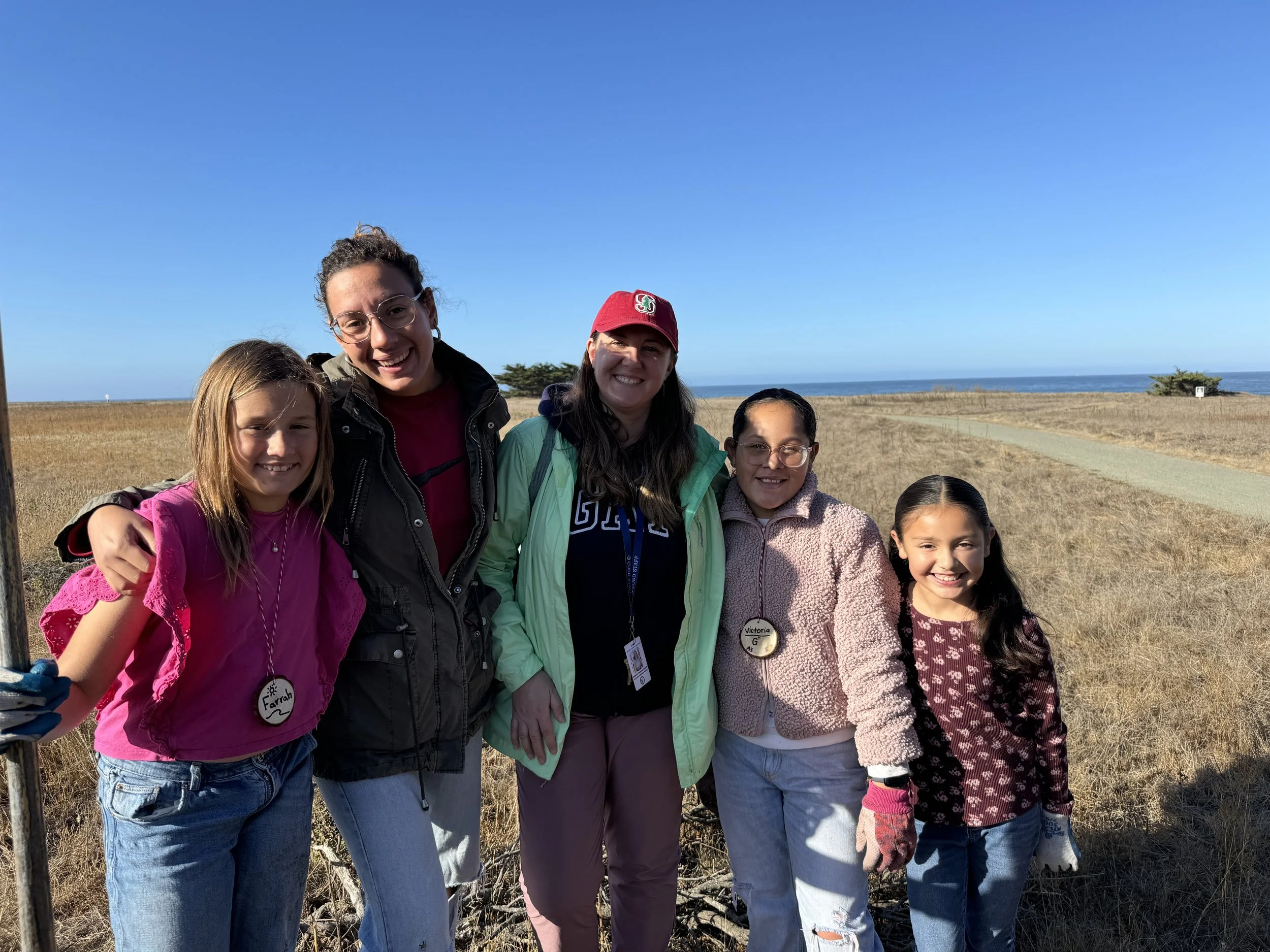Our Junior Land Stewards recently got out into the field - working hard to make a lasting impact on the land they’re helping to protect.
The students kicked off their trip by tackling one of the most important tasks in land management: invasive plant removal. Invasive species, such as non-native plants, can crowd out native vegetation, disrupting local ecosystems. By removing these plants, the students helped make room for native species that will better support local wildlife and foster healthier habitats.
Once the invasive plants were cleared, the students shifted to sheet mulching—a technique used to prepare garden plots for new plantings. The mulching process helps suppress weeds, enrich the soil, and retain moisture, all while preparing the ground for the native California plants the students will plant in February. Their efforts will pay off as they return to the site in the coming months to see the landscape transform with the planting of native species.
No JLS trip to the field would be complete without a little exploration, and the students took part in a naturalist scavenger hunt to document the wildlife and plant species around them. Armed with notebooks and keen observations, they recorded a variety of sightings, including:
Red-shouldered and Red-tailed Hawks
Harriers and American Kestrels in flight
Lizards basking in the sun
Bunnies hopping through the brush
Owl pellets left behind by nocturnal hunters
Invasive and native plant species
Signs of the changing fall season
By returning to the same site throughout the year, students will be able to see how the landscape changes with the seasons, observing how native plants grow, how wildlife behaves, and how restoration efforts make a tangible difference over time. The students’ hard work over the last two weeks is just the beginning of a long-term stewardship project. Their next visit will be in February, when they will return to plant the California native plants they’ve been preparing for. This will be a key moment in their journey as Junior Land Stewards—a chance to see how their efforts contribute to the restoration of vital ecosystems and to deepen their understanding of ecological sustainability.
These field trips wouldn't be possible without the The California Coastal Commission's WHALE TAIL® Grant.
We are also grateful for our many chaperones. Chaperones help keep students safe and engaged and make these trips happen. A big shout-out goes to all of you who have dedicated time and energy to supporting our program. Your presence makes a real difference, and we are deeply grateful for your commitment!
Stay tuned for more updates as our Junior Land Stewards continue their journey of discovery, action, and stewardship!

